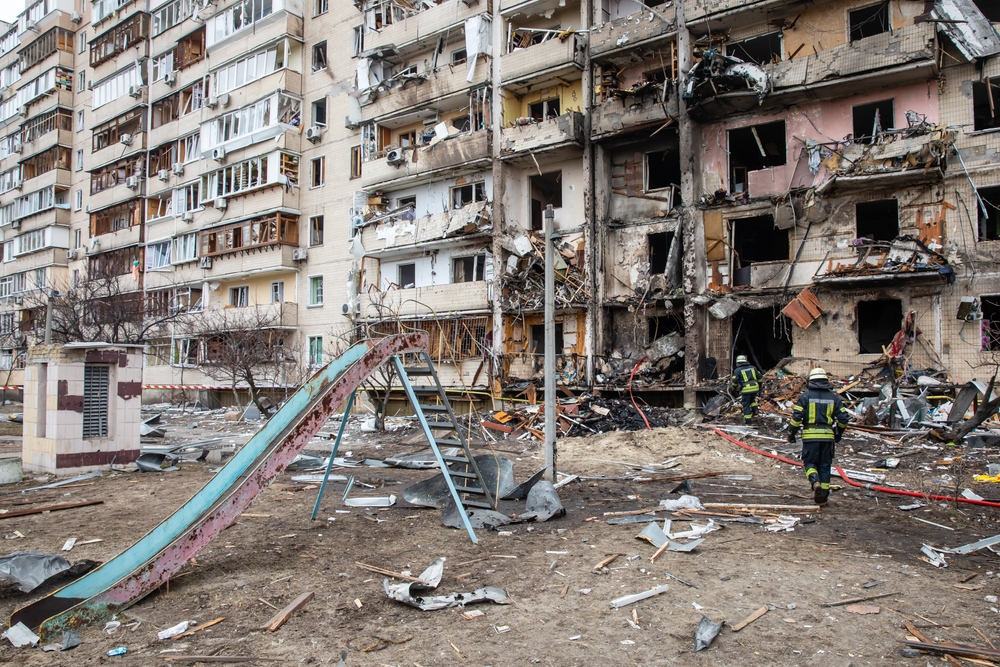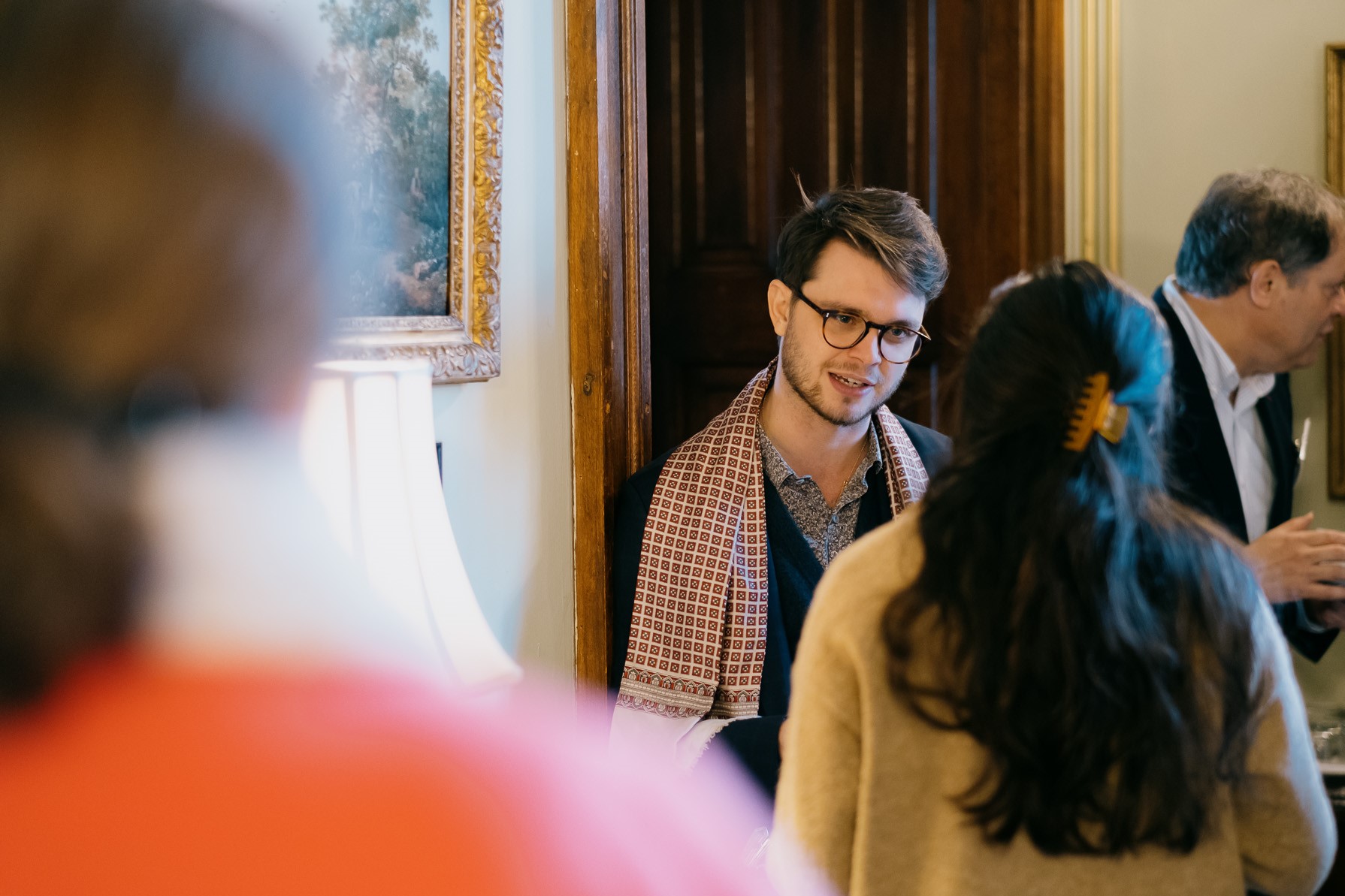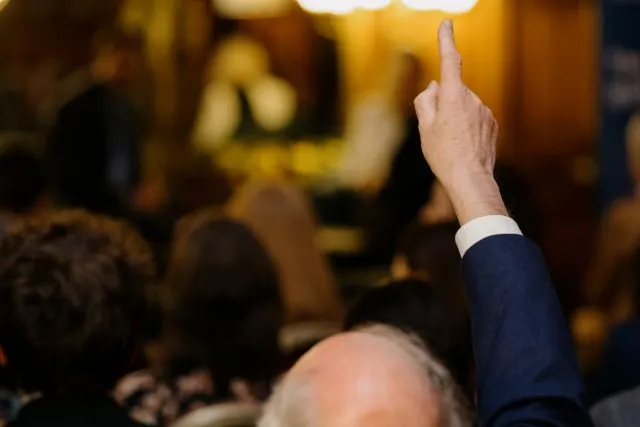It is easy to forget that a year ago many organisations were just days into standing down COVID emergency measures when the latest Russian invasion of Ukraine began.
It is a reminder that events and priorities can turn on a dime, and certainly Wilton Park has rapidly increased our focus on and support for Ukraine, including helping policymakers understand the nature of the security crisis for Europe, tackle mass atrocities, prepare for reconstruction, and focus attention on the future of war and deterrence.
At the same time climate change, global health, the rise of China, food security, demographic change, mounting debt, extremism, the growing crisis of legitimacy in global governance and a whole host of other major – often interconnected – challenges cannot be ignored.
In all of this, Wilton Park has a unique role to play as an executive agency of the British government. Building on our global reputation for objectivity, discretion and impact, Wilton Park is quietly convening officials and others from around the world to build the relationships and plans required to make real change.
None of this is achievable by any one organisation on its own. Wilton Park is always looking to build on the resources, networks and expertise we need to make a real difference. We are currently recruiting advisors for the Wilton Park Advisory Council. If you feel you can help us, whatever your background, please do get in touch. Rarely has our mission or purpose been more important.
Reintegration of children associated with armed forces or armed groups
It was Red Hand Day this month – a special day aimed at raising awareness of the recruitment of children to armed groups, with tens of thousands of children thought to be involved with armed groups in conflicts from Syria to Nigeria, from Yemen to the Central Africa Republic.
As recruitment and use of children by armed actors continues to rise in many countries around the world, how best to reintegrate such children into civilian life was under scrutiny at a recent Wilton Park conference.
Held in partnership with the Office of the Special Representative of the Secretary General for Children and Armed Conflict, UNICEF, the Norwegian Ministry of Foreign Affairs, Save the Children and War Child, reintegration was put forward as critical to global peace, security and development agendas.
There were powerful stories of how children associated with armed groups had been robbed of their childhood and key life opportunities. There were calls too that such children should be considered victims and not criminals and how children’s rights and best interests were often trumped by national security considerations with arbitrary detention and imprisonment common.
But reintegration is an issue that’s slipped down the agenda of governments which is why there’s a need for political bravery, more money to make it successful and a new narrative on why it’s important. Key to that, the conference concluded, is seeing reintegrated children as agents of positive change, with the potential to make a positive contribution to society and as promoters of peace.
Look out for the report from the meeting next month with its recommendations on how to do things differently, recognising that reintegration of children in armed groups is a complex, lengthy and sensitive process, requiring education, employment, mental health provision and community and family support.
Development
We continue to support the UK’s Preventing Sexual Violence in Conflict Initiative, launched at Wilton Park in 2012. In March, two events build on the body of work we have supported since its inception.
Conflict Related Sexual Violence Survivor Retreat
A survivor-centred approach is a key principle of the UK’s Preventing Sexual Violence in Conflict Initiative (PSVI) Strategy.
Our March retreat will bring together survivors, children born of Conflict Related Sexual Violence (CRSV), experts, civil society representatives and governments from across the world to consider how to effectively address CRSV through supporting survivor networks and strengthening the voices of survivors and children born of CRSV in national and international policy making.
The retreat will maintain momentum from the PSVI Conference held in November 2022, which launched a Political Declaration signed by 53 countries, including a commitment to drive change in a survivor-centred way, amplifying survivor voices. The retreat has been developed in partnership with the UK’s PSVI Survivor Champions and the FCDO.
Conflict Related Sexual Violence and Crimes Against Humanity
This Wilton Park conference follows the recent resolution in the UN’s 6th Committee, to reconvene in a resumed session in April 2023 (and again in 2024) to discuss the draft Crimes Against Humanity Convention (CAHC). The off-the-record roundtable aims to provide an expert forum for technical discussions on the CAHC and galvanise support. The discussions will help to feed into the 6th Committee negotiations in April and support the creation of a common position on an approach to gender equality and conflict-related sexual violence (CRSV) in the CAHC.
Diplomacy
Our recent conference, Data for Retention: Addressing under-representation of LGBTQ+ minorities in STEM, discussed the limited information available to support policy makers in the design of evidence-based interventions to address the under- representation of LGBTQ+ minorities in STEM disciplines in both the US and the UK.
Developed in partnership with the Science Innovation Network, the conference explored what data is currently collected, gaps in existing data and ways in which to overcome barriers to future data collection.
A key milestone toward collaboration on data sharing, the conference brought together a UK-US community of experts working together on DEI in STEM from government, NGOs, university administrations, researchers, and funders.
Later in March, we’ll be holding the inaugural Romania UK Forum. This will celebrate Romania-UK relations, reflecting the strength of links between the two nations.
Security
Strategic risk reduction will convene a core group of NATO allies and partners, along with senior non-governmental experts, to discuss and critically engage with strategic risk reduction.
Our aim is to build on existing efforts to encourage a focused dialogue on the current risk landscape and to develop thinking on a forward-looking agenda for future strategic risk reduction efforts.
In March, we convene two conferences in partnership with UK and Norway on nuclear disarmament.
First, and following from a successful conference last March that produced a UK-Norway side event at the NPT Review Conference, we will build on that work in a conference that further develops the concept of irreversibility in nuclear disarmament: its political, technical and legal parameters.
An invitation-only group of policy officials and non-government experts will then assess how to take the concept forward in diplomatic and academic work.
At the end of the month, we will continue our work in support of the UN’s Group of Governmental Experts on verifying nuclear disarmament: the Group members will meet in Montreux to assess the Chair’s first draft of their final report.


